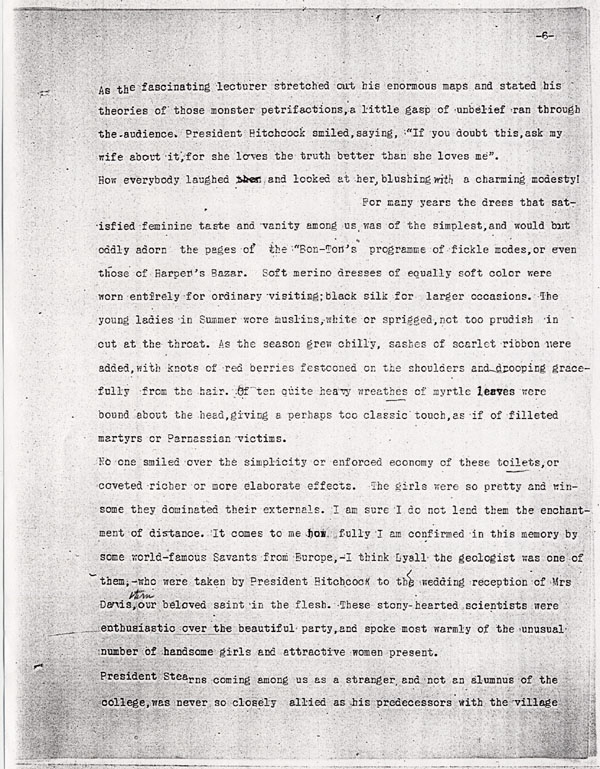
---------------------------------------------------------------------------------------------------------------------------
-6-
As the fascinating lecturer stretched out his enormous maps and stated his
theories of those monster petrifactions, a little gasp of unbelief ran through
the audience. President Hitchcock smiled, saying, "If you doubt this, ask my
wife about it, for she loves the truth better than she loves me".
How everybody laughed then and looked at her, blushing with a charming modesty!
For many years the dress that sat-
isfied feminine taste and vanity among us was of the simplest, and would but
oddly adorn the pages of the "Bon-Ton's" programme of fickle modes, or even
those of Harper's Bazar [sic]. Soft merino dresses of equally soft color were
worn entirely for ordinary visiting; black silk for larger occasions. The
young ladies in Summer wore muslins, white or sprigged, not too prudish in
cut at the throat. As the season grew chilly, sashes of scarlet ribbon were
added, with knots of red berries festooned on the shoulders and drooping grace-
fully from the hair. Often quite heavy wreathes of myrtle leaves were
bound about the head, giving a perhaps too classic touch, as if of filleted
martyrs or Parnassian victims.
No one smiled over the simplicity or enforced economy of these toilets, or
coveted richer or more elaborate effects. The girls were so pretty and win-
some they dominated their externals. I am sure I do not lend them the enchant-
ment of distance. It comes to me how fully I am confirmed in this memory by
some world-famous Savants from Europe, -- I think Lyall the geologist was one of
them; -- who were taken by President Hitchcock to the wedding reception of Mrs
Davis, then our beloved saint in the flesh. These stony-hearted scientists were
enthusiastic over the beautiful party, and spoke most warmly of the unusual
number of handsome girls and attractive women present.
President Stearns coming among us as a stranger, and not an alumnus of the
college, was never so closely allied as his predecessors with the village



